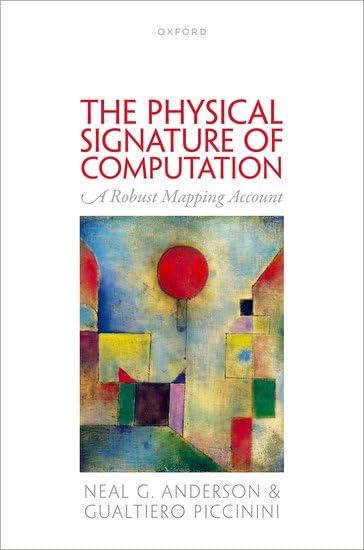

The Physical Signature of Computation: A Robust Mapping Account
Neal G. Anderson, Gualtiero Piccinini
In The Physical Signature of Computation, Neal Anderson and Gualtiero Piccinini articulate and defend the robust mapping account--the most systematic, rigorous, and comprehensive account of computational implementation to date. Drawing in part from recent results in physical information theory, they argue that mapping accounts of implementation can be made adequate by incorporating appropriate physical constraints. According to the robust mapping account, the key constraint on mappings from physical to computational states--the key for establishing that a computation is physically implemented--is physical-computational evolving physical states bear neither more nor less information about the evolving computation than do the computational states they map onto. When this highly nontrivial constraint is satisfied, among others that are spelled out as part of the account, a physical system can be said to implement a computation in a robust sense, which means that the system bears the physical signature of the computation. Anderson and Piccinini apply their robust mapping account to important questions in physical foundations of computation and cognitive science, including the alleged indeterminacy of computation, pancomputationalism, and the computational theory of mind. They show that physical computation is determinate, nontrivial versions of pancomputationalism fail, and cognition involves computation only insofar as neurocognitive systems bear the physical signature of specific computations. They also argue that both consciousness and physics outstrip computation.
Publisher
Oxford University Press
Publication Date
9/1/2024
ISBN
9780198833642
Pages
352
Categories
Reader Reviews
Loading comments...